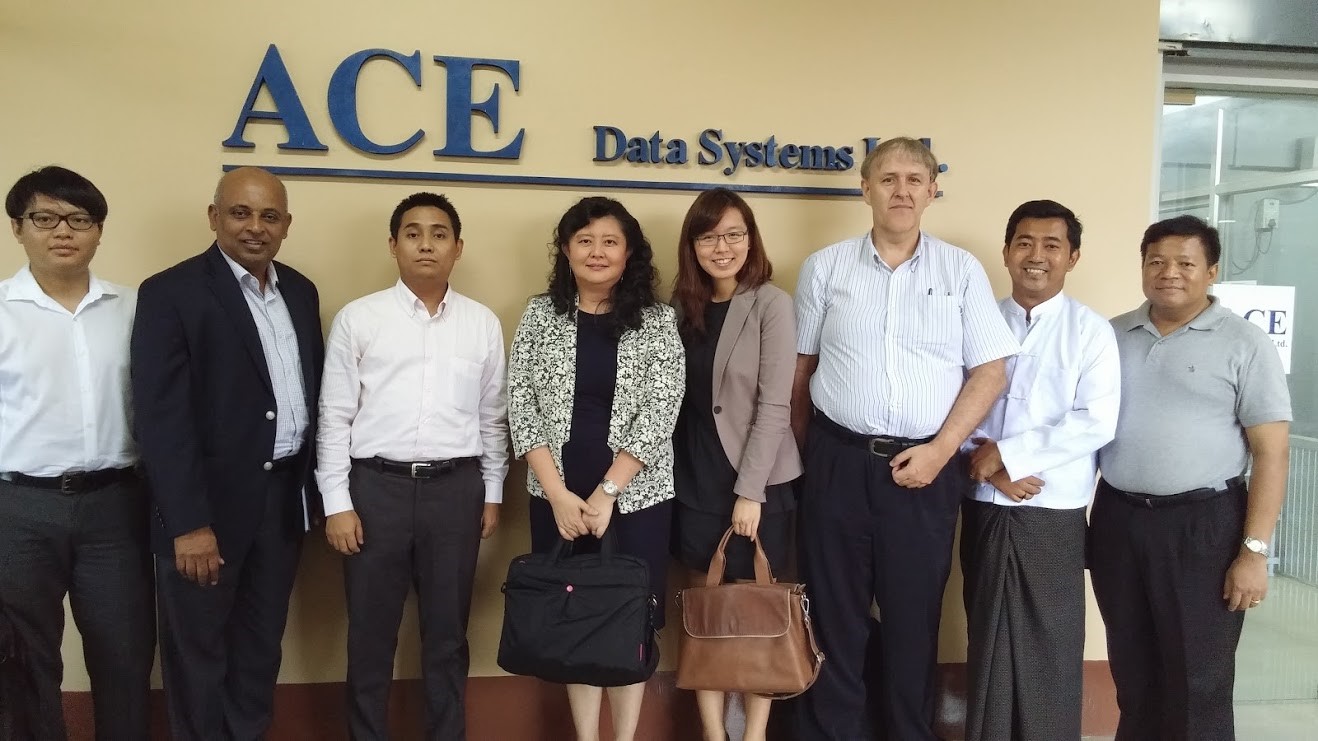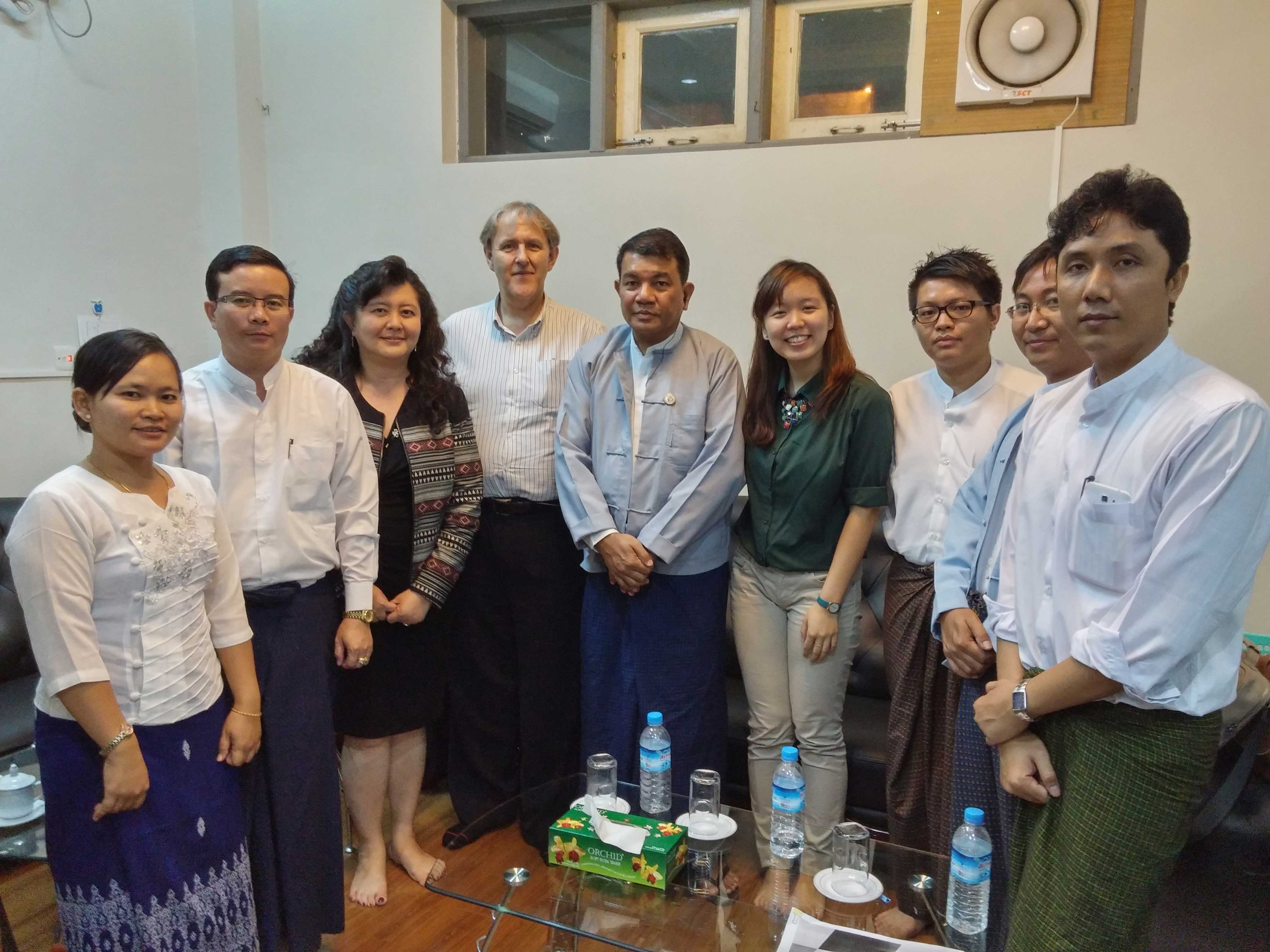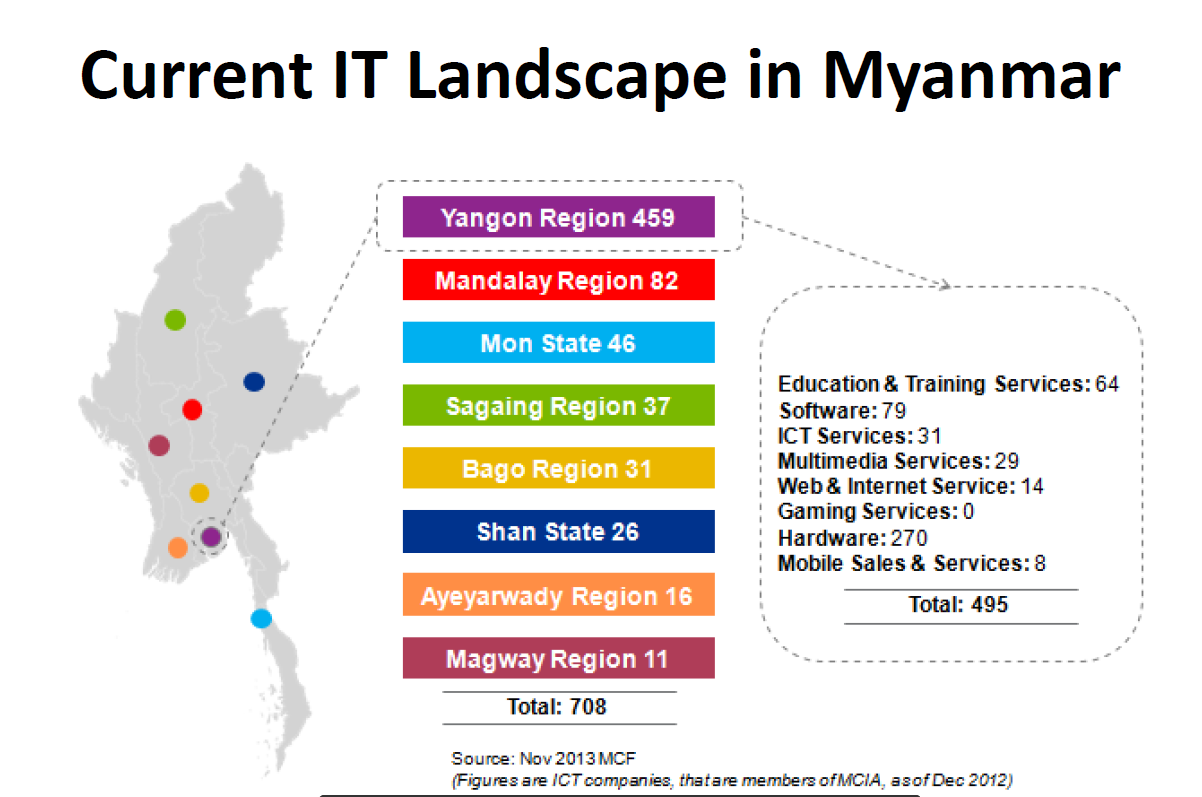Asia's next rising star is fast becoming an ICT hotbed. A recent study by KPMG and NUS-ISS reveals the gap in Myanmar's infocomm capacity and the underlying opportunities for ICT professionals and companies in this emerging economy.
After more than six decades of civil wars, Myanmar's political reform in 2010 finally allowed the country to install its first elected government and embark on the road to economic recovery and growth.
Naturally endowed with plenty of precious natural resources from oil and gas to jade and minerals, a youth population and a strategic location nestled within Asia's emerging economies, the Myanmar economy, with a GDP of around S$87 billion in 2014, is still largely under-developed and has yet to fully tap on its potential.
The Myanmar government is working to accelerate productivity and capacity for growth through various channels. One of the strategies is to use infocomm technologies, like cloud computing, to enable six focal areas of development in government, education, healthcare, banking, retail and agriculture.
This presents huge opportunities for Myanmar's infocomm sector. An IDC study expected the Myanmar IT market to exceed S$300 million by 2016, with Yangon and Mandalay driving the sectoral growth as Myanmar's leading IT hubs.
The transformation has also exposed the severe shortage of IT talents in the country that is limiting its capacity and speed for economic reform. This is exacerbated by the sharp demand for cloud-related IT talents in the Asia-Pacific region that is set to create more than two million infocomm jobs by the end of 2015, according to IDC.
Towards this end, the Myanmar Ministry of Science & Technology commissioned a study in 2014 to review the gaps in Myanmar universities' capacity for developing local IT talents to meet the nation's economic demand and to benchmark the undergraduate degrees in these tertiary institutions against Singapore's universities.
The project, sponsored by the Asian Development Bank, was conducted by a join KPMG and NUS-ISS team with KPMG leading the team in the capacity analysis and NUS-ISS supporting with its infocomm domain expertise. Four Myanmar universities - the University of Technology, the University of Computer Studies, the Yangon Technological University and the Mandalay Technological University - participated in the study. The team also visited several Myanmar ICT associations and companies to grasp Myanmar's fledging infocomm ecosystem.
A Capacity Review Framework was created to guide the initiative.
Among several gaps discovered were under-staffed IT facilities, strapped resources, dated curricula and a demanding 6-year degree programme. Interestingly, more than three-quarters of the cohorts were female students and most of them would not join the local ICT workforce upon graduation.

Meeting with ACE Data Systems, a local leading IT company
Project partners from NUS-ISS: Ashok Kumar (second from left), and Howard Russon (third from right). KPMG project team: Miranda Lee (Centre Left) and Rachel Tan (Centre Right)

Final presentation with the Director-General of Myanmar's Ministry of Science & Technology, Kyaw Zwa Soe (Centre) and the ICT University representatives
Project partner from NUS-ISS:
Howard Russon (fourth from left). KPMG project team: Miranda Lee (third from left), Rachel Tan (fourth from right)
"Myanmar offers myriad opportunities. With the recent political developments, there is even greater potential for the country to achieve economic prosperity. ICT as a sector is set to power up the country. With its ample natural resources and big ambitions, the growth trajectory for the country is set to increase. We feel privileged to have had the opportunity to contribute, through the ADB sponsorship and together with our partner NUS-ISS, to its transformation journey," shared Miranda Lee, Director, KPMG Consulting Pte Ltd.
From the findings, the team recommended a capacity strengthening programme targeting the five areas of Building Capacity & Infrastructure, Empower the Universities, Learner Focused, Industry Oriented and Developing Credentials and an implementation framework to develop and fortify the Myanmar ICT capacity.
"Myanmar is at the cusp of a historic transformation of political, social and economic frontier. International telecommunication service providers providing network coverage, local banking and financial sector using technology and the rapid growth in use of social media have set the stage for propelling Myanmar to the path of growth and progress, unlocking latent local talent and entrepreneurial skills. This ICT curriculum benchmarking project is strategic and when implemented, will lay a strong foundation for Myanmar to realise her goals of transformation. It was a pleasure to work with the KPMG team, who were very professional, great leaders and team players," observed Ashok Kumar, Centre Director, Singapore e-Government Leadership Centre (eGL).

For more information on the Singapore e-Government Leadership Centre, please visit www.egl.sg